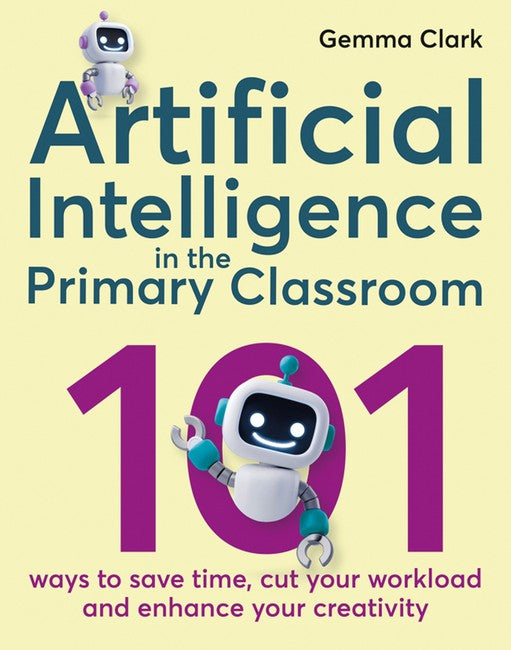A comprehensive guide that presents 101 innovative ways to effectively integrate artificial intelligence into primary education, enhancing learning experiences and streamlining administrative tasks for teachers. Artificial intelligence (AI) undoubtedly sparks debate among teachers. Questions arise about the trajectory of this new technology: where will it take us?; how will we differentiate between studentauthored work and AI-generated content?; what impact will it have on the dynamics of learning and teaching within schools? These are all crucial topics for discussion, yet AI has already become an integral part of our reality, and Gemma Clark firmly believes that embracing its potential is in our best interests. In an era defined by technological advancements, Artificial Intelligence in the Primary Classroom stands as an indispensable resource that holds the key to transforming teaching and learning. For educators burdened by bureaucratic tasks that divert precious time from actual teaching, this book offers a lifeline. It showcases how AI-powered tools can alleviate administrative burdens, enabling teachers to focus more on crafting personalised and imaginative lessons that resonate with young minds. From automating report-writing processes to facilitating content creation, the book imparts tangible methods to streamline workflows and elevate teaching quality. Other examples include:* Spelling Lessons: Save time when planning your spelling lessons by using AI to automatically generate a comprehensive list of phonemes or ‘sounds suitable for teaching young children.’* Mindfulness in the Classroom: If you are interested in incorporating mindfulness games and activities to assist children in relaxation and focus, AI can provide valuable suggestions for fostering pupil (and staff) wellbeing.* PE Lessons: You don’t have to be an expert in sport to teach PE. Whether it’s tennis, football, rugby or running, AI can offer suggestions for activities, warm-ups and cool-downs to use in your PE lessons.* Art Lessons: AI can be an excellent resource for planning art lessons, especially when seeking suggestions to emphasize one of the eight elements, such as line, shape, form, colour, value, texture, space, and value.* Maths: As with spelling, AI can significantly reduce the time spent on creating maths questions and simplify the process of differentiation.Artificial Intelligence in the Primary Classroom is filled with practical strategies, engaging activities and useful tips and tricks that will save teachers time and energy as well as transferrable lesson plans with step-by-step instructions. Backed up by real-world examples throughout, this book empowers teachers to embrace AI as a tool in fostering enhanced learning experiences, while also reclaiming invaluable time for pedagogical creativity.Features and benefits:* Helps teachers manage their increasingly difficult and time-consuming workloads.* Covers new methods for assessment and marking.* Presents new and innovative ways of learning and teaching.* Offers transferrable ideas that can be adapted and used in secondary settings as well as primary.

